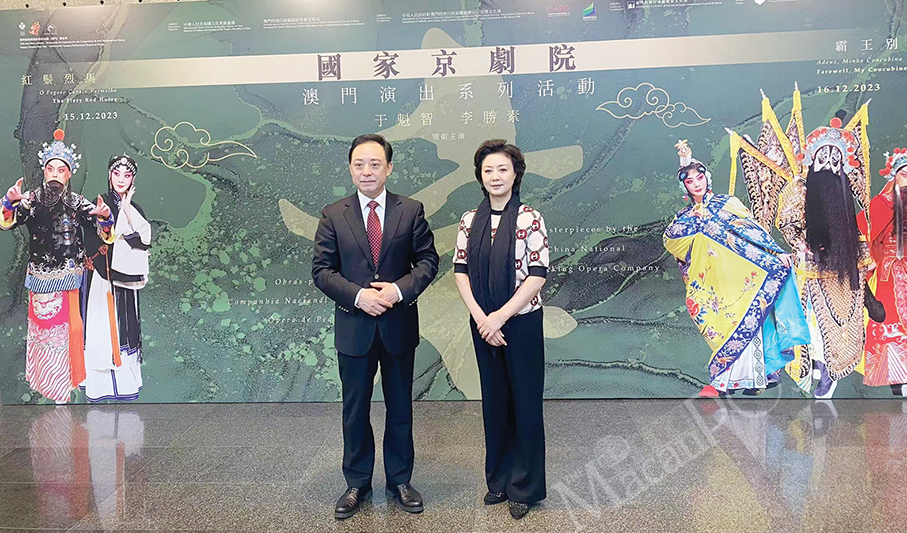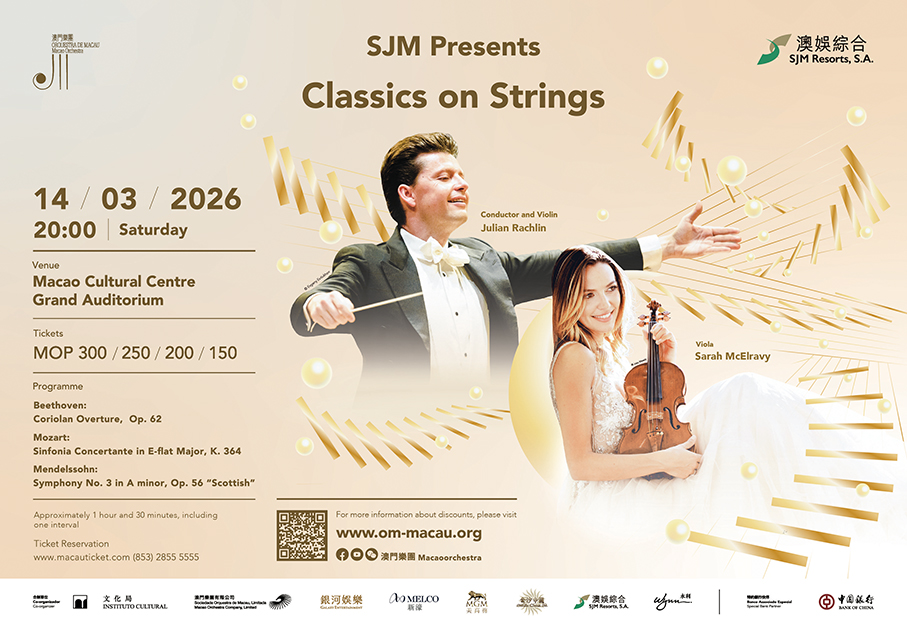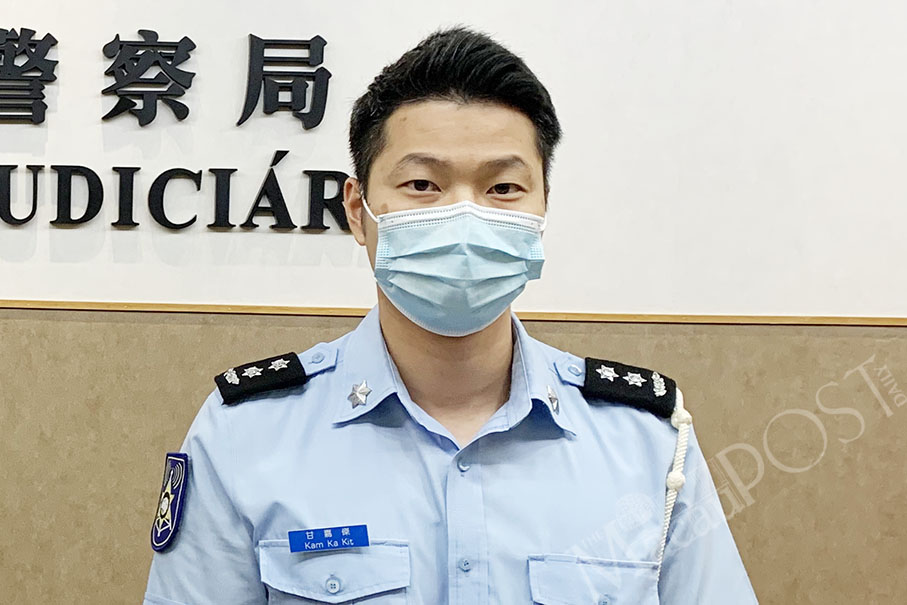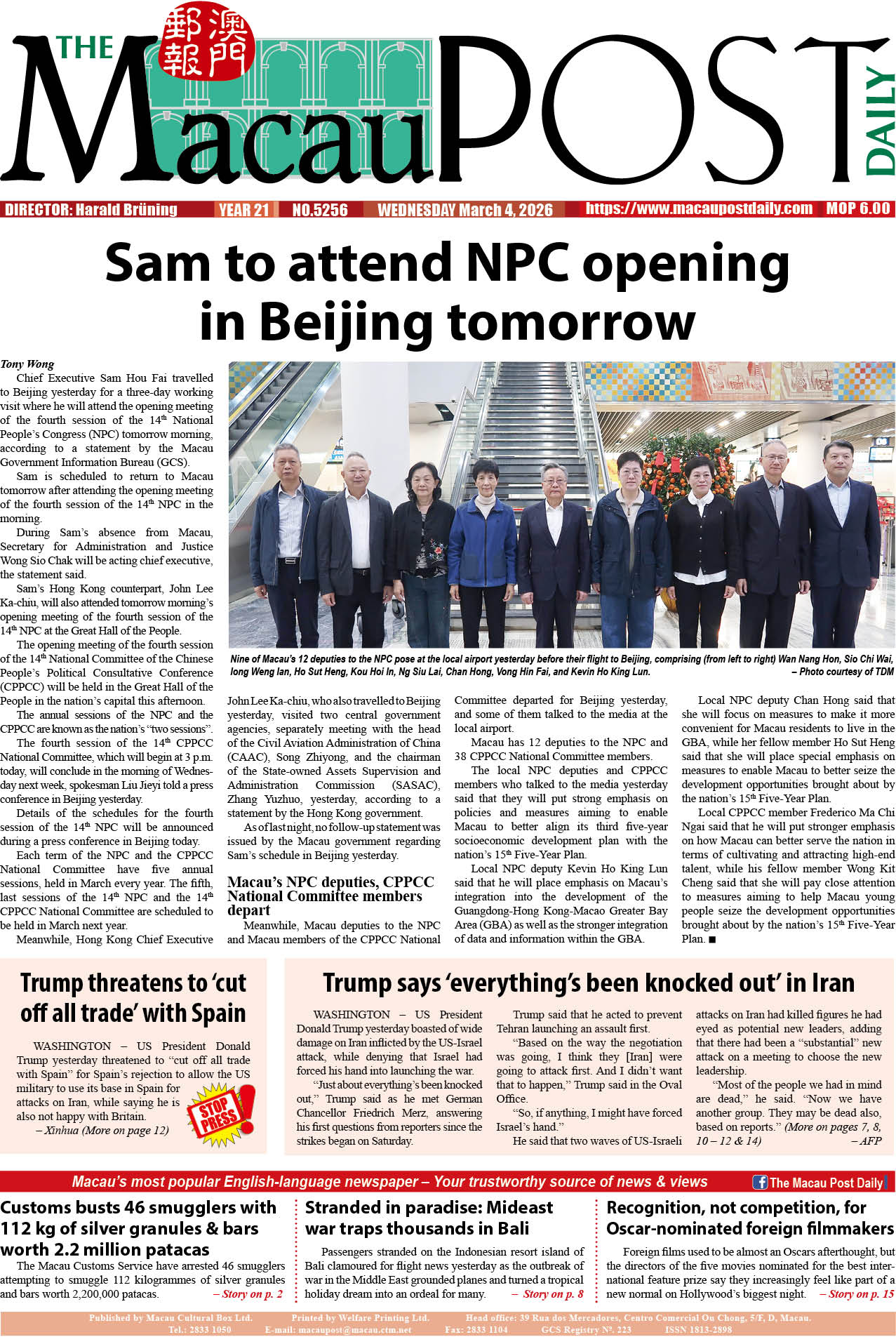The China National Peking Opera Company (CNPOC) will stage two shows at the Macau Cultural Centre’s (CCM) Grand Auditorium today and tomorrow, as part of the “Happy Chinese New Year - National Art Troupes Performance Season in Macao” event organised by the Ministry of Culture and Tourism in Beijing and the local Secretariat for Social Affairs and Culture, featuring two Chinese operatic tales performed by the troupe.
The Cultural Affairs Bureau (IC), which coordinates the event, held a media gathering for the two shows at the CCM in Zape yesterday, where two representatives of the troupe, Yu Kuizhi and Li Shengsu – both veteran Peking opera performers from the mainland, spoke with the media to introduce the quintessentially traditional Chinese opera, and shared their thoughts about Macau’s performing arts strategies to nurture performing arts talents.
“Peking” is the former spelling of “Beijing” based on a different romanisation system that had been used until the 1950s.
The United Nations Educational, Scientific and Cultural Organisation (UNESCO) defines Peking opera as a performance art incorporating singing, acting and martial arts. It is sung and recited using primarily Mandarin (in particular Beijing dialect), and its librettos are composed according to a strict set of rules that prize form and rhyme.
Established in 1955, the CNPOC is one of the nation’s leading Chinese opera troupes directly under the supervision of the Ministry of Culture and Tourism. Originally named the National Peking Opera Theatre of China, it performs both classic and modern Peking opera repertoire based on, and extending the tradition, according to Wikipedia.
According to information on the Cultural Affairs Bureau website, the first show slated to be staged tonight is The Fiery Red Horse (紅鬃烈馬), a legend-based tale that took place during the Tang Dynasty. The second show to be staged tomorrow is Farewell, my Concubine (霸王別姬), a tragic story depicting the last days of rule of the warlord Xiang Yu, whose faithful concubine, in the face of military defeat, danced for him one last time before using his sword to end her own life.
In yesterday’s media gathering, Yu, who has been performing Peking opera for over 40 years, said that he and his team had visited and hosted workshops on Peking opera in several local secondary schools this week, and that he was grateful to see many students showing great interest and curiosity about the artistic features, especially its facial makeup and costumes. He said that he regarded youngsters as the target audience for the two shows, as they “play a leading role in shaping the perception of society towards art and artistes”, adding that both shows could be seen as an “aesthetic education” for the younger generation to not only immerse themselves in the traditional Chinese cultural heritage, but also to appreciate the cultural diversity embedded in performance arts.
“In orchestra performances, for example, you should clap when the conductor appears onstage and at the end of each musical number, but not after each movement. When watching Peking opera, however, the audience can clap anytime and call out their approval to the performers,” the 61-year-old ethnic Hui Peking opera performer noted.
Li, another representative of the troupe, said that she was excited to finally return to the stage in Macau since her last visit in 2021, as the event was cancelled last year due to the COVID-19 pandemic. The 57-year-old actor added that Macau’s primary and secondary schools could consider incorporating Peking opera as well as other performing arts into their curriculum of art education, in order to better nurture the next generation of talents in the field.
Both shows will commence at 7:30 p.m. The tickets are priced at 300, 200 and 100 patacas, depending on the seats. The shows are performed in Mandarin, with Chinese and English subtitles. More information is available at the IC’s website www.icm.gov.mo.

China National Peking Opera Company (CNPOC) artistes Yu Kuizhi (left) and Li Shengsu pose at the end of yesterday’s media gathering in the Macau Cultural Centre (CCM). – Photo: Gabriel Tam









